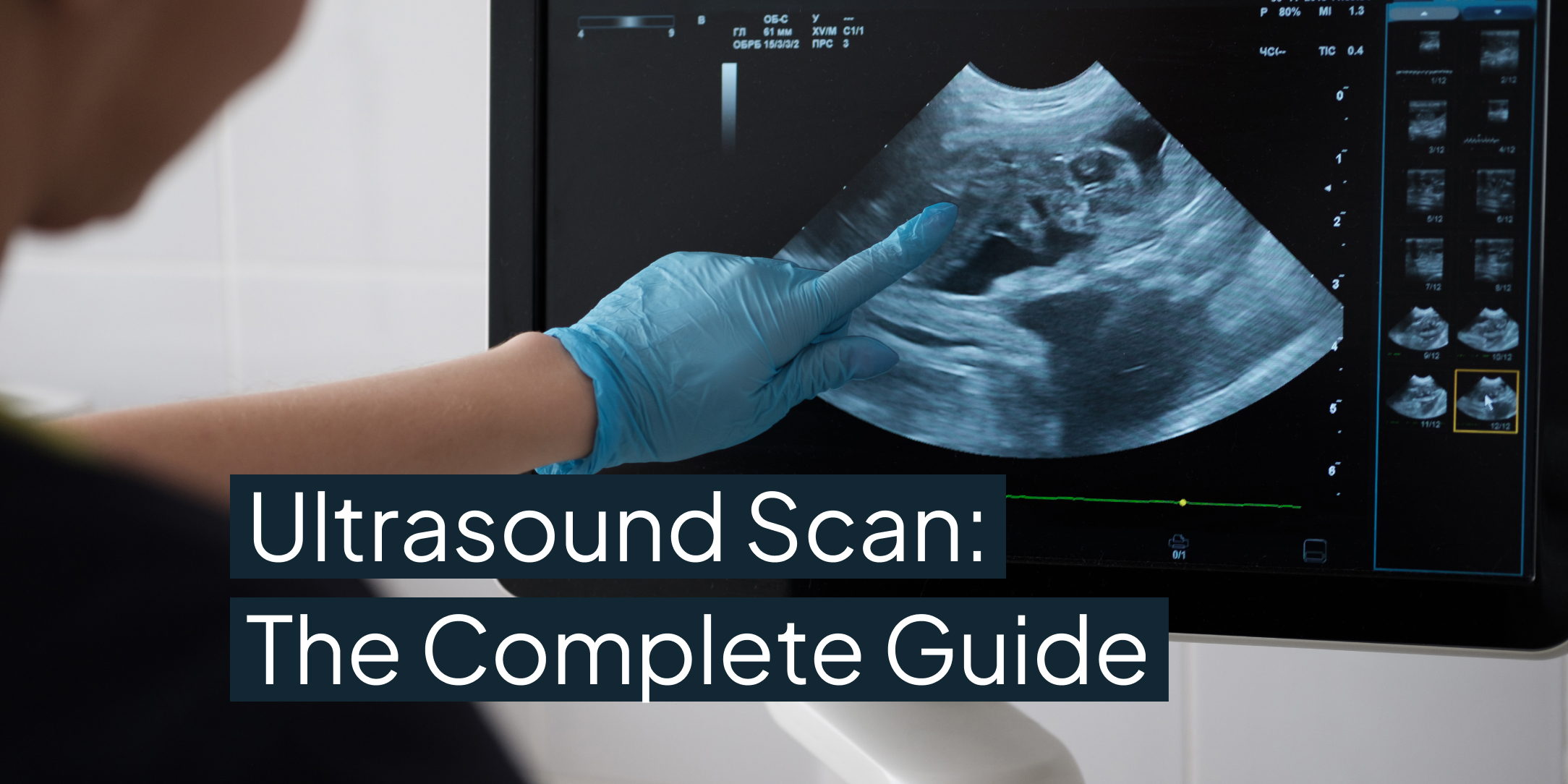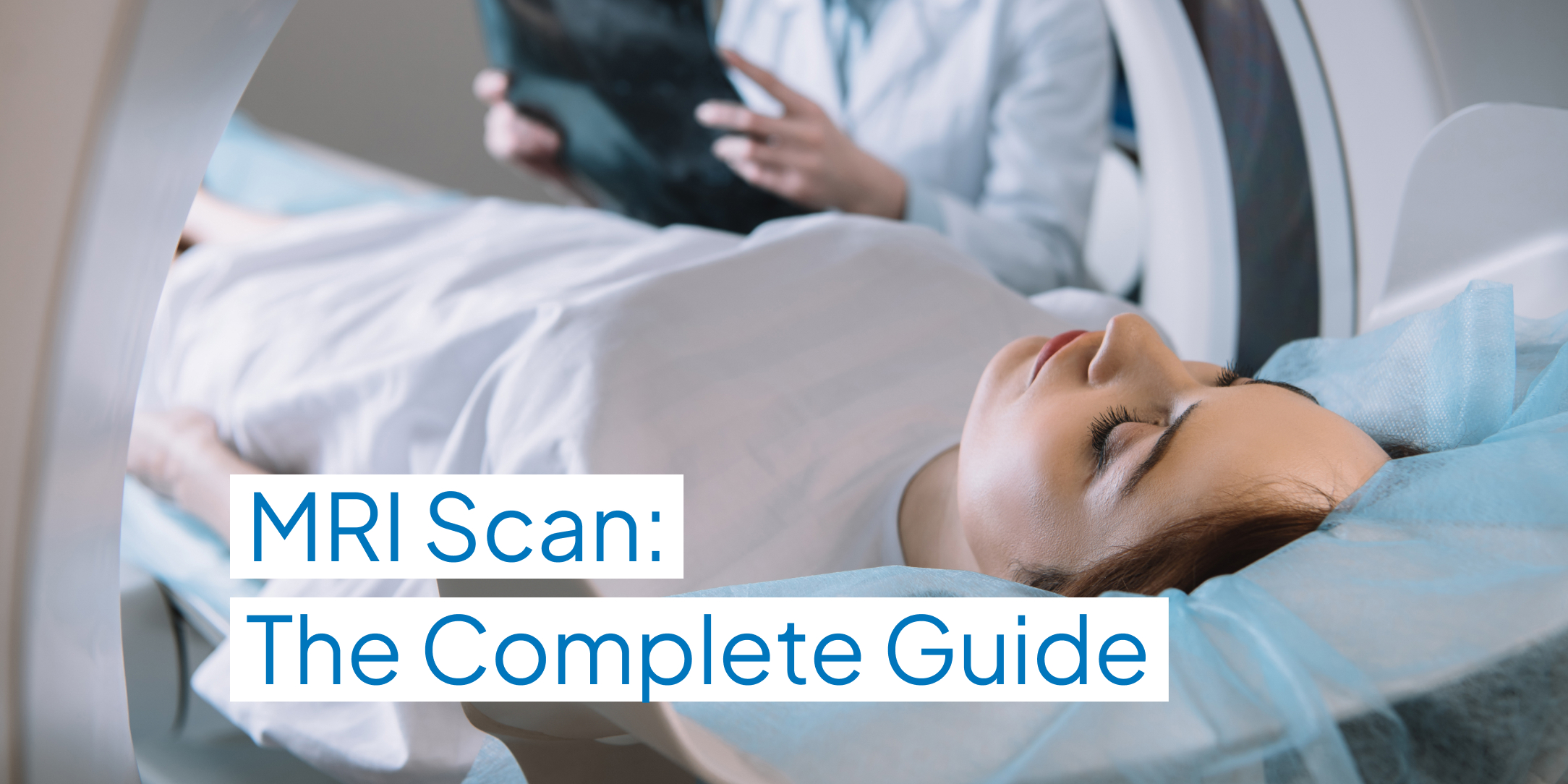CT Scan: The Complete Guide (Updated 2025)


GetScannedToday
Intro
CT scans are one of the most widely used diagnostic tools in the NHS and private healthcare. Short for Computed Tomography, a CT scan combines multiple X-ray images into cross-sectional slices of the body, providing doctors with a detailed view of organs, bones, and blood vessels.
CT scans are especially valuable in emergency medicine and for assessing trauma, cancer, and cardiovascular disease. In November 2024, the NHS performed 596,864 CT scans, up 4.3% compared to the previous year. Despite this, many patients still face delays: as of January 2025, around 10% of CT patients waited more than six weeks, compared with just 2% before the pandemic.
This guide explains what a CT scan is, what it can detect, NHS versus private wait times, and how you can book one quickly through GetScanned.
What is a CT scan?
A CT scan uses X-rays and computer technology to produce cross-sectional images of the body. These images are more detailed than a standard X-ray and can be reconstructed into 3D views.
Unlike MRI, which uses magnets, CT uses ionising radiation. While this exposure is small, it means CT is not always the first choice for children or repeated imaging.
What does it show?
CT scans are excellent at visualising bones, lungs, and the abdomen, making them indispensable in both emergencies and planned diagnostics.
By body system, CT can show:
- Neurological:
- Stroke or bleeding in the brain
- Head trauma injuries
- Skull fractures
- Brain tumours (in some cases)
- Musculoskeletal:
- Complex bone fractures
- Bone tumours
- Osteoporosis-related fractures
- Cardiovascular:
- Aneurysms
- Coronary artery disease (CT angiography)
- Pulmonary embolism (blood clots in the lungs)
- Chest:
- Lung nodules or cancer
- Pneumonia and infections
- Pleural effusions
- Abdomen & Pelvis:
- Appendicitis
- Kidney stones
- Liver disease
- Abdominal tumours
- Oncology:
- Cancer staging
- Monitoring treatment progress
- Detecting spread (metastasis)
Who might need one?
A CT scan may be requested if you:
- Suffer a serious injury or trauma.
- Have unexplained chest or abdominal pain.
- They are suspected of having a blood clot or stroke.
- Need cancer staging or follow-up.
- Have conditions that cannot be fully evaluated by X-ray or ultrasound.
On the NHS, CT scans are usually arranged via a GP or specialist referral. With GetScanned, you can also self-refer for many CT scans, avoiding delays.
How does the CT scan work?
Step-by-step patient journey:
- Booking: Choose your scan type, location, and date online. Complete a few health-related questions.
- Medical referral: Connect with one of our GPs who will discuss your medical history and generate a referral for your scan.
- Arrival: Complete a safety questionnaire covering implants, medical history, and pregnancy.
- Preparation: Remove jewellery, metal objects, and sometimes change into a gown.
- Positioning: Lie on a motorised table that slides into the CT scanner (a large ring-shaped machine).
- The scan: The scanner rotates around you, capturing multiple images. The process is painless and usually lasts 5–15 minutes.
- Contrast dye (if required): Some scans use a dye injected into your arm to highlight organs or blood vessels.
- Completion: The scan lasts 15–60 minutes, depending on the body part.
- Aftercare: You can usually resume normal activities immediately.
Preparation & Safety
Preparation:
- Wear loose clothing.
- Fast for a few hours if contrast is being used.
- Tell your clinician about allergies, kidney disease, or pregnancy.
Safety considerations:
- CT involves a low dose of ionising radiation. Risks are small but higher in children and with repeated scans.
- Not always recommended in pregnancy unless essential.
- Contrast dye may rarely cause allergic reactions or affect kidney function.
Results & Next Steps
- Images are reviewed by a consultant radiologist.
- Results are usually ready within a few working days.
- Reports are sent to you and your GP/specialist.
- Possible outcomes:
- Normal scan: No abnormalities found.
- Abnormal findings: Requires further tests or treatment.
- Incidental findings: Unrelated results that may still need follow-up.
NHS Wait Times vs Private Options
NHS CT scan demand is high:
- January 2025: Around 10% of CT patients waited more than six weeks, compared with 2% before the pandemic.
- Median wait for all diagnostic tests in Nov 2024 was 2.6 weeks, though CT wait times can be longer in certain regions.
- CT is more widely available than MRI, but scanner pressure still leads to delays.
Private CT scan with GetScanned:
- Book online without a GP referral (for most scans).
- Access nationwide, CQC-registered clinics.
- Appointments are usually within days.
- Results delivered in a few working days.
Cost & Booking with GetScanned
- Prices from £410, depending on body part and location.
- Secure online checkout.
- Nationwide coverage.
- Insurance can be accepted - requires pre-authorisation or that you check your policy.
Book your CT scan with GetScanned
Comparison Table: CT vs MRI vs X-ray
Checklist: What to Bring
- Comfortable clothing (no metal fasteners)
- Photo ID (in case required by the scan centre)
- List of current medications
- Any previous imaging results (if available)
Take a look at our news and articles
Frequently asked questions
Do I need a GP-referral?
No prior GP-referral is required. Booking with us includes a GP phone consultation and referral. Shortly after booking you will be contacted by a GP from our team who will discuss your scan and provide a referral.
How long is an MRI scan?
MRI scans generally take a bit longer than other types of scans. Individual scans take 10-30 minutes depending on the body part being scanned, overall it can take anywhere from 15 minutes to 90 minutes. You do have to lay very still for an MRI and if there is movement the scan may need to be repeated which can add some additional time.
What’s included in my booking?
With your GetScanned booking, you will receive:
- A pre-scan phone consultation with a member of our medical team.
- A referral for the scan.
- Scheduling of a private MRI scan at your preferred scanning centre.
- Access to your written report by a radiologist.
- Access to your scan images (online and downloadable).
How much is a private MRI scan?
A private MRI scan cost varies depending on the part of the body being scanned and the location the scan is performed. Generally, a private MRI scan in the UK starts at around £350, and includes the scheduling, scan itself and results.
What’s the difference between an open and closed MRI?
Closed MRI machines are the traditional and first type of MRI. They are used more frequently because they provide higher quality images, however they aren’t ideal for certain types of scan or when the patient has limited mobility. Open or wide-bore MRI machines don’t involve lying in a tight cylinder, instead they have wider openings with more space and are therefore considered better if you suffer from claustrophobia. A standing MRI or upright MRI is a new type of open MRI that allows the patient to be in various different positions, including weight bearing positions. If you would prefer an open MRI please filter by MRI type to find an open MRI near you, but please be aware it is only available at certain locations.

Still have questions?
Can't see an answer to your question? Our friendly customer care team are happy to help.





